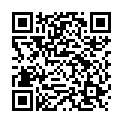|
|
|
| Module code: KIB-TI |
|
|
4V (4 hours per week) |
|
5 |
| Semester: 3 |
| Mandatory course: yes |
Language of instruction:
German |
Assessment:
Written exam
[updated 19.02.2018]
|
KIB-TI (P222-0044) Computer Science and Communication Systems, Bachelor, ASPO 01.10.2021
, semester 3, mandatory course
KIB-TI (P222-0044) Computer Science and Communication Systems, Bachelor, ASPO 01.10.2022
, semester 4, mandatory course
PIB-TI (P221-0041) Applied Informatics, Bachelor, ASPO 01.10.2022
, semester 3, mandatory course
PIB-TI (P221-0041) Applied Informatics, Bachelor, SO 01.10.2026
, semester 5, mandatory course
|
60 class hours (= 45 clock hours) over a 15-week period.
The total student study time is 150 hours (equivalent to 5 ECTS credits).
There are therefore 105 hours available for class preparation and follow-up work and exam preparation.
|
Recommended prerequisites (modules):
None.
|
Recommended as prerequisite for:
|
Module coordinator:
Prof. Dr. Maximilian Altmeyer |
Lecturer: Prof. Dr. Maximilian Altmeyer
[updated 27.09.2016]
|
Learning outcomes:
After successfully completing this module, students will be familiar with the basic terms and concepts of theoretical informatics. They will be familiar with the characteristics of automatic machines and languages and can select and apply suitable theoretical concepts (e. g. finite automaton or pushdown automaton) for practical tasks.
[updated 19.02.2018]
|
Module content:
Mathematic principles
Regular languages
Finite automata
Nondeterminism
Regular expressions and languages
Context-free languages
Pushdown automata
Context-free grammar
Turing machines and variations
Decidability
Halting problem
[updated 19.02.2018]
|
Teaching methods/Media:
Board, script, simulation software
[updated 19.02.2018]
|
Recommended or required reading:
HOPCROFT J.E., ULLMANN J.D., MOTWANI R., Einführung in die Automatentheorie, Formale Sprachen und Komplexitätstheorie, Pearson, 2002
SIPSER Michael: Introduction to the theory of computation, Course Technology, 3rd edition, 2012
[updated 19.02.2018]
|
Module offered in:
WS 2022/23,
WS 2021/22,
WS 2020/21,
WS 2019/20,
WS 2018/19
|


